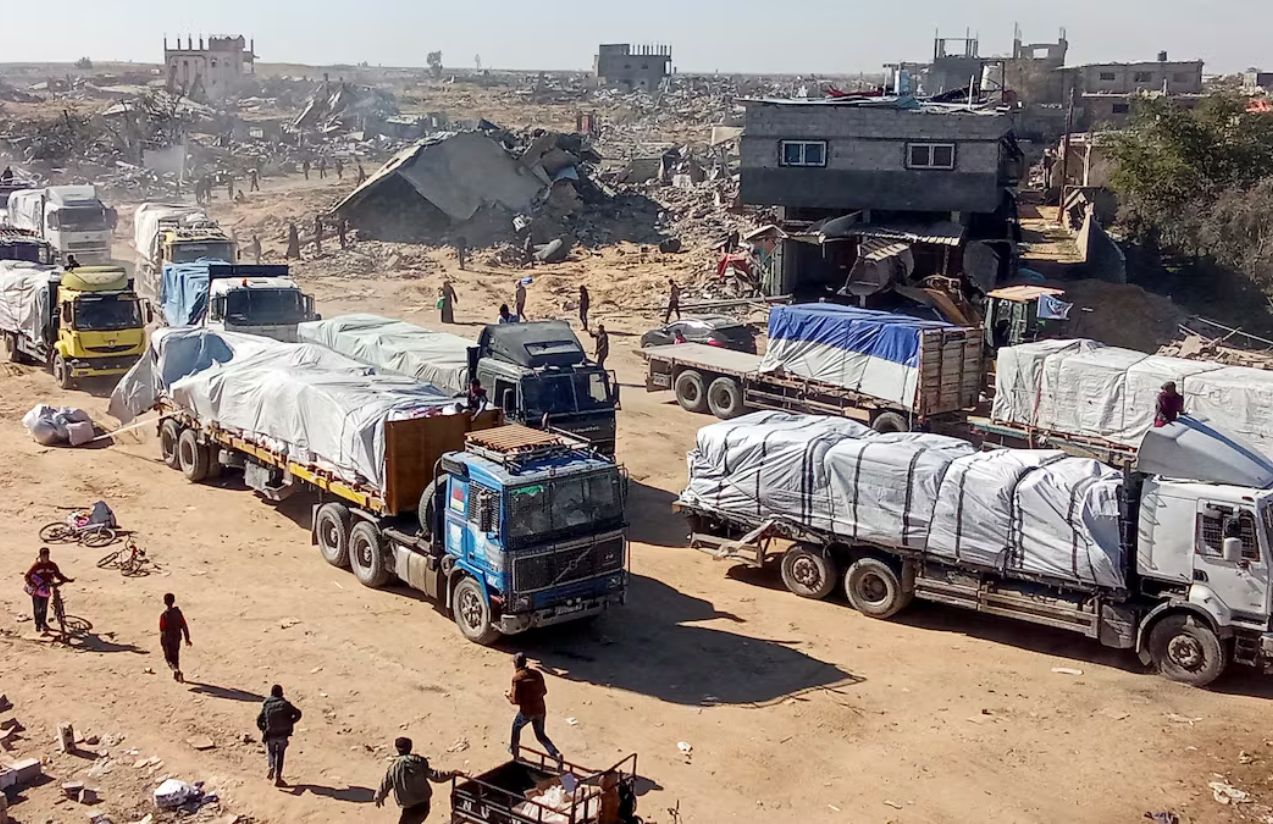At least 23 people were killed overnight on Thursday in a series of Israeli airstrikes across the Gaza Strip, as the military offensive showed no sign of abating. Meanwhile, Israel allowed only limited humanitarian aid into the besieged enclave, where conditions remain dire.
The strikes targeted various areas of the territory: ten people were killed in the southern city of Khan Younis, four in central Deir al-Balah, and nine in the Jabaliya refugee camp in the north, according to reports from Nasser, Al-Aqsa, and Al-Ahli hospitals.
The latest wave of violence has drawn a fresh wave of international condemnation, with growing calls for increased aid access. Gaza has been under a strict Israeli blockade for nearly three months, and the United Nations warns that much of its more than two million residents are at imminent risk of famine.
Even the United States, one of Israel’s closest allies, has voiced concern over the escalating hunger crisis.
Tensions have also flared abroad. A suspect has been charged with murder after two Israeli embassy employees were shot while leaving a diplomatic reception at the Jewish Museum of the Capitol in Washington, D.C. According to court documents, the suspect told police he acted “for Palestine.” He did not enter a plea during his Thursday court appearance.
That same night, Israeli Prime Minister Benjamin Netanyahu condemned the killings in Washington and sharply criticized France, the United Kingdom, and Canada for proposing the establishment of a Palestinian state. “By issuing their demand, which came with threats of sanctions—against Israel, not Hamas—these three leaders effectively signaled they want Hamas to remain in power,” Netanyahu said.
Under mounting pressure, Israel has allowed more than 100 aid trucks to enter Gaza via the Kerem Shalom crossing. The trucks carried flour, food supplies, medical equipment, and medicines. But UN agencies have warned that this is a fraction of what’s needed—during the most recent ceasefire, around 600 trucks a day were entering Gaza to meet basic humanitarian needs.
Israeli military restrictions and the breakdown of public order in Gaza continue to hinder both the recovery and distribution of aid. As a result, only a small portion has reached those in urgent need.
Strikes continued into Friday morning. The previous day, Israeli tanks and drones targeted Al-Awda Hospital in northern Gaza, sparking fires and causing extensive damage. Footage taken by a health official at the hospital shows collapsed walls and thick black smoke rising from the rubble.
Israel maintains it will press on with its campaign until all 58 remaining hostages are freed—fewer than half of whom are believed to be alive, according to Israeli authorities—and until Hamas is disarmed.
Hopes for a ceasefire have stalled. Earlier this week, Netanyahu withdrew his senior negotiation team from the Qatari capital of Doha, following a week of fruitless talks. A working-level delegation remains in place.
Qatar’s Prime Minister and Foreign Minister, Mohammed bin Abdulrahman Al Thani, acknowledged a “fundamental gap” between the parties and said none of the proposals have succeeded in bridging their differences. Hamas, meanwhile, accused Israel of “falsely portraying its participation” in the talks and attempting to “deceive global public opinion” by keeping its delegation in Doha without engaging in serious negotiations.
The war began on October 7, when Hamas-led militants launched a surprise assault in southern Israel, killing around 1,200 people—mostly civilians—and kidnapping 251 others. The group continues to hold 58 hostages, about a third of whom are believed to be alive after most others were released in ceasefire deals or other agreements.
Israel’s retaliatory campaign, which has devastated large swaths of Gaza, has claimed the lives of more than 53,000 Palestinians—mostly women and children—according to Gaza’s Health Ministry, which does not differentiate between civilians and combatants in its death toll.

